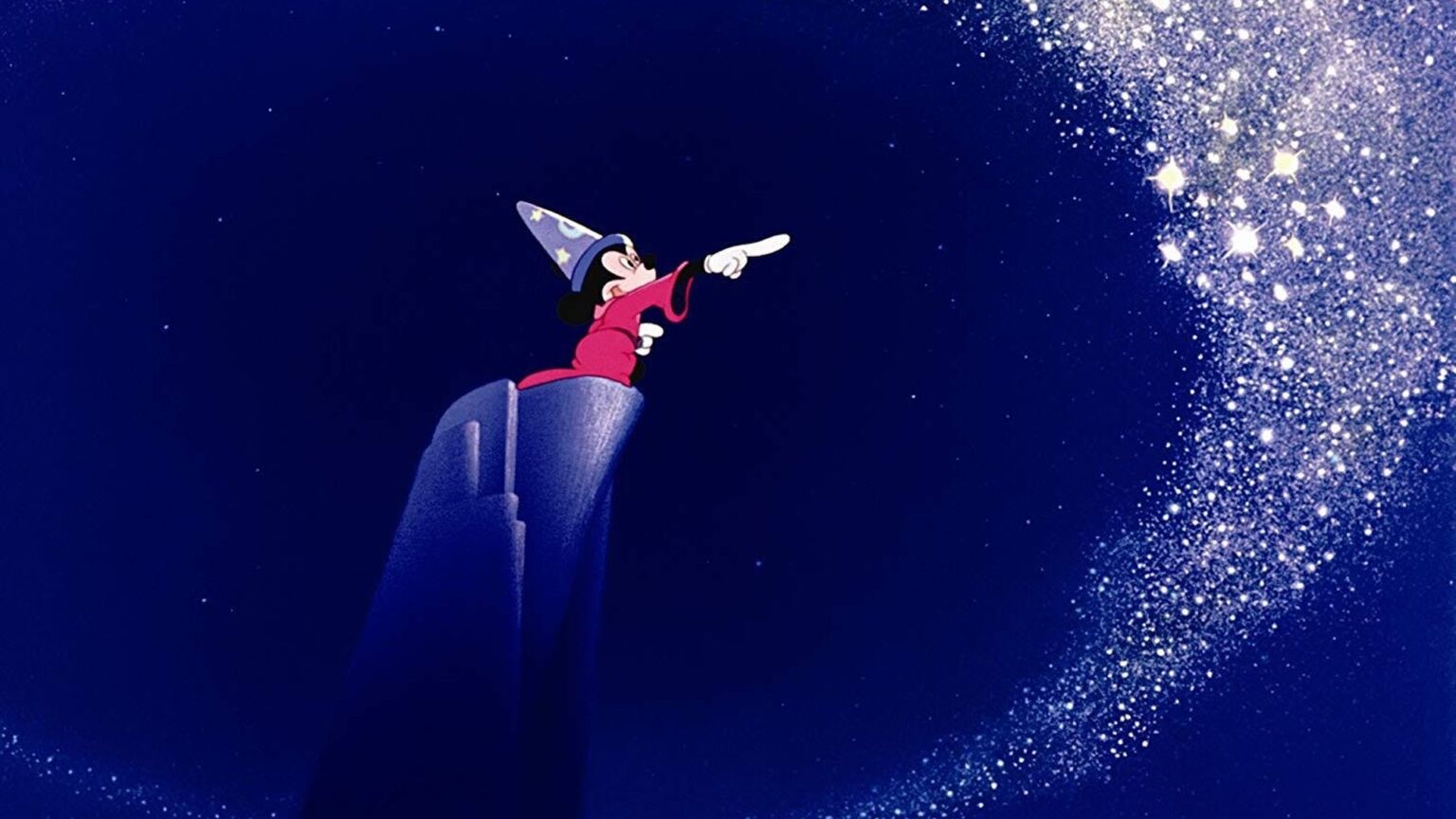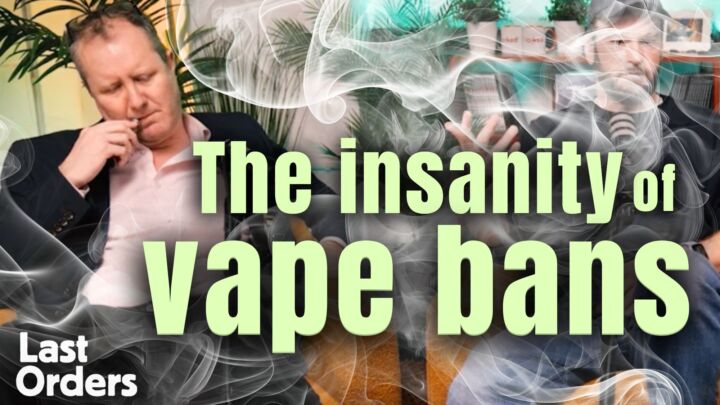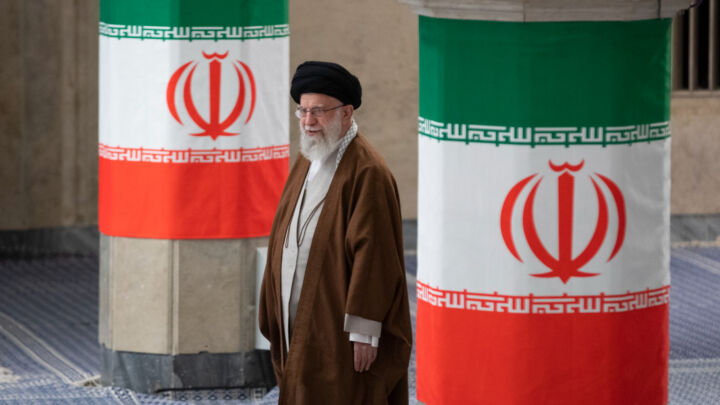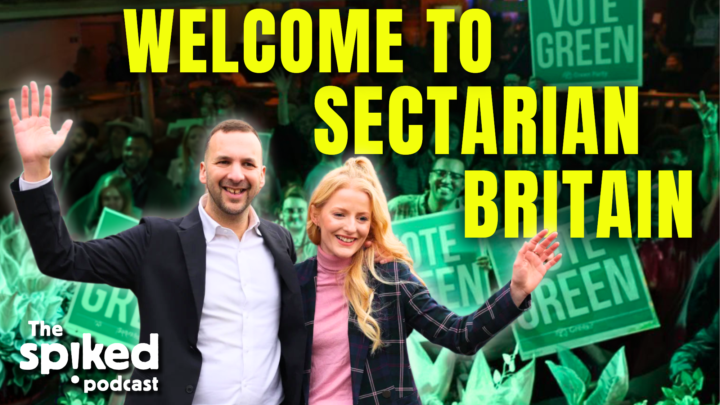Why Disney couldn’t make Fantasia today
Kids’ films are now defined by wokeness and risk-aversion.

Want unlimited, ad-free access? Become a spiked supporter.
Eighty-five years ago today, Walt Disney did something few modern studio heads would dare. He followed his most commercially successful project to date (Snow White and the Seven Dwarves) not with a sequel or a sugary imitation, but with something entirely new – a two-hour experiment. Sans dialogue, sans plot, and scored by eight back-to-back works of classical music, Fantasia was like no animated film ever seen before, in which dinosaurs, wizards and demons embarked on surreal adventures timed to the chaos of the orchestra.
It was a bout of artistic madness that almost bankrupted Disney. With the release coinciding with the outbreak of the Second World War, Disney lost access to the European market (which accounted for almost half of its revenue). Critics argued that the film was too high-brow, too dark, too far a leap from the gag-driven kids’ cartoons for which Disney had become known. Subsequently, Walt Disney Productions was overrun with letters from parents claiming the ‘Night on Bald Mountain’ sequence had ‘traumatised’ their children.
Fantasia is viewed very differently today. Far from being discarded as pretentious drivel intended to frighten children, it is revered as a masterwork of animation. In 1990, the film was selected for preservation in the United States National Film Registry by the Library of Congress as being ‘culturally, historically [and] aesthetically significant’. In taking a gamble, Disney had proved that children’s movies and, in particular, children’s animation, could be respected as a serious art form.
Fantasia is a concert for the eyes. Disney incorporated roughly three centuries worth of music, setting each piece to its own unique dreamscape. The viewer watches snowflakes dance to Tchaikovsky, prehistoric beasts wiped out to Stravinsky, Mickey Mouse wrestling an anthropomorphic broomstick to Dukas. Drawing from the entire Western canon – from Goethe’s 1797 poem, Der Zauberlehrling (The Sorcerer’s Apprentice) to Darwin’s On the Origin of Species – Disney created a work that was part symphony, part hallucination. A child’s picture book rendered with the ambition of high art.
There’s little chance of the Walt Disney Company making something as risky as Fantasia today. Instead, it churns out a steady stream of live-action remakes and diversified sequels, often prioritising the appeasement of ‘progressive’ sensibilities over storyline. From this year’s feminist retelling of Snow White to the contrived insertion of a non-binary character into 2023’s Elemental, it is difficult to sit through a modern Disney film without feeling as if you’re being lectured.
These problems are not just afflicting Disney. Almost the entire landscape of family cinema in the English-speaking world is shaped by the same risk-aversion and ‘progressive’ didacticism. Today’s execs and creatives have dedicated a lot of time to catering for the perceived sensibilities of millennial parents, and almost none to asking what inspires the young mind to wonder. Even projects that wisely skirt any ‘woke’ talking points seem only able to do so by being excessively droll.
That’s not to say that the big releases of the past few years, like Minions: The Rise of Gru or The Super Mario Bros Movie are bad – fun, irreverent kids movies will always have their place. But will they stick? Will they age into ‘children’s classics’ to rank alongside the likes of The Iron Giant or Gene Wilder’s Willy Wonka and the Chocolate Factory? Will the Gen Alpha of 20 years’ time collectively experience that warm, fuzzy nostalgia for their youth whenever they see a re-run of Inside Out 2? It seems unlikely.
There are good reasons for this. Any storyteller worth his or her salt recognises that the audience will happily follow a great protagonist through a poorly written plot, but rarely follow a great plot via a poorly written protagonist. This detail proves a stumbling block in modern children’s cinema. In recent years, the uniform hero – invariably, a loveable misfit – needs only to learn that it is society that needs to change, not him or her. In Frozen, Elsa must let it go and embrace her power – not restrain it. In Luca, it is the frightened villagers that must change, not the sea-monster child. In Turning Red, Mei learns to accept her spontaneous transformations into a red panda, rather than holding them back. There is nothing wrong with movies about identity and acceptance. It’s just that today there are only movies about identity and acceptance.
Surely there is room for other protagonists. What happened to the likes of Mary Lennox, the dour-faced heroine of The Secret Garden, whose flowers only bloom once she stops being so spoiled and uncaring? Or Mr Toad of Wind in the Willows, who must let go of his fleeting, materialist obsessions if he is to establish true friendship? Or Jack Skellington, The Nightmare Before Christmas’s prince of Halloween, forced to reckon with the fact that not everyone finds joy in the same things he does? These characters were rooted in ideas most adults understand. That children require adversity and guidance to become fully formed. That it isn’t just about ‘expressing yourself’. That sometimes you are the one who needs to change, rather than demanding that the world change to fit you.
Equally disappointing is the lack of trust children’s movies appear to place in their young audience. Parental fears that certain films might ‘permanently scar’ their children are nothing new, of course – Fantasia’s reception back in the 1940s goes to show as much. So it was, too, with Disney’s The Black Cauldron – in which a young pig-keeper takes on a macabre army of the undead – and Don Bluth’s The Secret of NIMH – an eerie gothic tale from the perspective of mutated lab rats – in the 1980s. Interestingly, all three of these movies now have cult followings.
There is no need to clutch our pearls at the thought of kids watching Other Mother in Coraline attempt to sew buttons into Coraline’s eyes, or Fiver’s prophetic visions of blood-soaked fields in Watership Down. These films allow children to brush against the edges of real-world danger. They give shape to cruelty, death and violence without ever causing harm. Moments like the drowning of the horse, Artax, in the Swamp of Sorrows in The NeverEnding Story, or the off-screen death of Bambi’s mother, aren’t there to traumatise; they prepare children for the inevitability of grief.
The titans of children’s cinema never shied away from presenting young viewers with the rich pageant of life, in all its cruelty and beauty. But too few of today’s filmmakers even try. The result is glossy half-worlds, caught somewhere between utopia and a ceaseless parable of social justice – so desperate to be right that they have forgotten how to be real.
The slow artistic decline of Disney and other movie companies has left the market wide open for competitors. Since the weird and wonderful Spirited Away became a global sensation in 2001, Studio Ghibli (dubbed ‘the Japanese Disney’) continues to captivate international audiences. Unlike Disney, which said goodbye to extensive use of hand-drawn animation for good in 2011, Ghibli refuses to capitulate to soulless CGI. Its dedication to awe-inspiring visuals and brave storytelling for children is no doubt the reason why The Boy and the Heron outgrossed Disney’s Wish in 2023.
It’s not that the old ones are good because they’re old. It’s that those that endure do so because they are textured, intelligent and recall what it is like to see the world through the eyes of a child. The real magic is in courage, not conformity. It’s a lesson Disney could do with re-learning.
Georgina Mumford is an editorial assistant at spiked.
You’ve hit your monthly free article limit.
Support spiked and get unlimited access.
Support spiked and get unlimited access
spiked is funded by readers like you. Only 0.1% of regular readers currently support us. If just 1% did, we could grow our team and step up the fight for free speech and democracy.
Become a spiked supporter and enjoy unlimited, ad-free access, bonus content and exclusive events – while helping to keep independent journalism alive.
Monthly support makes the biggest difference. Thank you.









Comments
Want to join the conversation?
Only spiked supporters and patrons, who donate regularly to us, can comment on our articles.